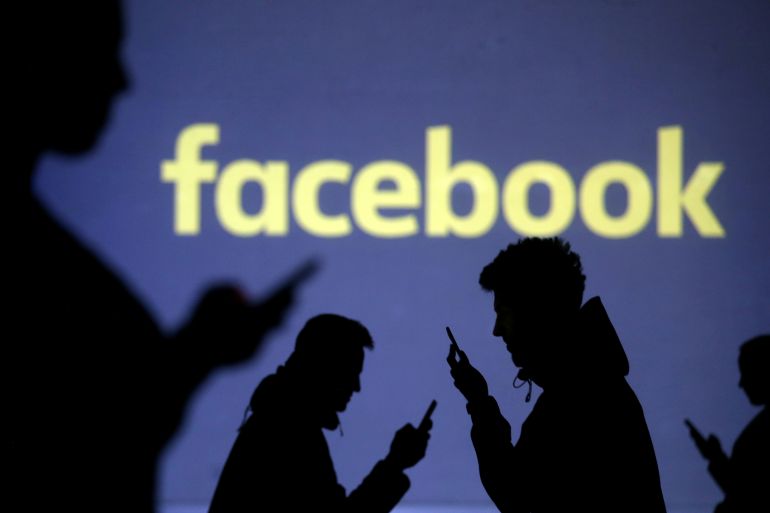Facebook bans posts that deny or distort the Holocaust
Social media giant says the new policy is response to the rise in anti-Semitism and ignorance about the Nazi killings.

Facebook is banning posts that deny or distort the Holocaust and will start directing people to authoritative sources if they search for information about the Nazi killings, in the latest move restricting controversial content.
Company CEO Mark Zuckerberg announced the new policy Monday, the latest attempt by the social media giant to take action against conspiracy theories and misinformation ahead of the United States presidential election on November 3.
Keep reading
list of 4 itemsWhat is QAnon, the conspiracy theory spreading throughout the US
Al Jazeera suspends two journalists over Holocaust report
Holocaust survivor Michael Katz on how he escaped the Nazis
The decision comes amid a push by Holocaust survivors around the world who lent their voices to a campaign targeting Zuckerberg beginning this summer, urging him to take action to remove Holocaust denial posts from the social media site.
“I’ve struggled with the tension between standing for free expression and the harm caused by minimizing or denying the horror of the Holocaust,” said Zuckerberg, who is Jewish, in a Facebook post on Monday.
“My own thinking has evolved as I’ve seen data showing an increase in anti-Semitic violence, as have our wider policies on hate speech,” he said.
Facebook said the new policy “is supported by the well-documented rise in anti-Semitism globally and the alarming level of ignorance about the Holocaust, especially among young people”.
Surveys have shown that some younger US citizens believe the Holocaust was a myth or has been exaggerated.
About six million Jews were killed by the Nazis during World War II.
#NoDenyingIt
The World Jewish Congress and the American Jewish Committee praised the move.
“For several years, the World Jewish Congress has advocated for Facebook to remove Holocaust denial content from its platform,” the group said in a statement.
This summer, civil rights groups organised a widespread Facebook advertising boycott to try to pressure social media companies to act against hate speech on their platforms.
Holocaust Denial is Hate Speech.
Holocaust Denial is Antisemitism.Denying the Holocaust is a tool antisemites use to spread hate and false conspiracies about Jews. This move sends a message that Facebook will no longer allow this ideology.https://t.co/moD4851kP7
— WJC (@WorldJewishCong) October 12, 2020
“This has been years in the making. Having personally engaged with @Facebook on the issue, I can attest the ban on Holocaust Denial is a big deal,” tweeted Jonathan Greenblatt, chief executive of the Anti-Defamation League, one of the boycott’s organisers. “Glad it finally happened,” he added.
This has been years in the making. Having personally engaged with @Facebook on the issue, I can attest the ban on Holocaust Denial is a big deal. Whether it's @ADL & #StopHateForProfit's insistence, #NoDenyingIt-it doesn't matter. Glad it finally happened. https://t.co/Yc2idnv33u
— Jonathan Greenblatt (@JGreenblattADL) October 12, 2020
The Conference on Jewish Material Claims Against Germany has also pushed for Facebook to ban Holocaust denial content and has called for Zuckerberg to meet with survivors through its #NoDenyingIt social media campaign.
In August, Facebook banned certain anti-Semitic conspiracy theories and stereotypes.
In its blog post, the company cited a recent survey that found almost a quarter of adults in the US aged 18-39 said they believed the Holocaust was a myth, that it had been exaggerated or they were not sure.
The company said that enforcement of its new policies would not “happen overnight”.
“There is a range of content that can violate these policies, and it will take some time to train our reviewers and systems on enforcement,” it said.
The move comes two years after Zuckerberg sparked controversy with a 2018 interview with tech website Recode in which he said that while he found Holocaust denial deeply offensive, he did not think Facebook should delete such content.
Last week, Facebook said it was removing any group or page that openly identified with QAnon, a conspiracy theory group that holds some far-right views but largely believes that a cabal of paedophiliac Satanists run the world. The move also applies to Instagram.
The social media giant has also announced restrictions on intentional disinformation on the coronavirus as well as posts designed to suppress voting.
The platform has been under pressure to moderate more content, amid signs that groups like QAnon were able to gain traction through social media.